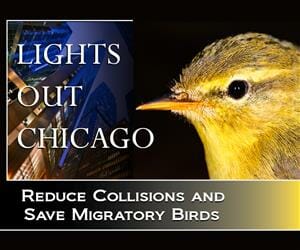New City Labor Laws in Effect July 1: Minimum Wage, Fair Work Week and Anti-Retaliation
Minimum Wage and Paid Sick Leave
This July 1, the minimum wage will increase from $13.00 to either $13.50 or $14.00 per hour (depending on the number of workers at a business). For qualifying employers with 21 or more workers, the new minimum wage will be $14.00, and for employers with four to 20 workers, the new minimum wage will be $13.50. There are also increased minimum wages for youth workers and tipped workers, listed here. All Domestic Workers are guaranteed Chicago’s minimum wage – even those working for employers with fewer than four workers. As a reminder, when tipped workers’ wages plus tips do not equal at least the minimum wage, their employer must make up the difference.
You can find further information about the Minimum Wage and Paid Sick Leave Ordinance in the Minimum Wage FAQ, Chicago Minimum Wage Chart, and in various minimum wage webinar recordings available on the Office of Labor Standards website.
Chicago Fair Workweek
The Chicago Fair Workweek Ordinance also goes into effect on July 1, and requires that employers in certain industries with over 100 workers (250 for a restaurant or non-profit) between all locations provide predictable work schedules and pay workers for last minute changes. Employers will be required to provide work schedules to Covered Employees with 10 days’ notice. Employers must pay a single hour’s additional wage for any hours added, changed, or cancelled with less than 10 days’ notice, and must pay half of a worker’s wages for any hours cancelled with less than 24 hours’ notice. Workers also have a right to decline unscheduled hours, and to decline hours that begin within 10 hours of the end of the previous day’s shift.
In response to the COVID-19 pandemic, we passed legislation to delay the Private Cause of Action section of the Fair Workweek Ordinance until January, 2021. While the legislation will be in effect and the City will be enforcing its provisions starting July 1, this will allow businesses to implement the regulations without facing private lawsuits during the first six months. Additionally, the COVID-19 Pandemic Rule exempts work schedule changes that are specifically due to the pandemic from certain provisions of the Chicago Fair Workweek Ordinance.
You can find further information about the Chicago Fair Workweek Ordinance in the FAQ, and in various webinar recordings available on the Office of Labor Standards website.
Anti-Retaliation
The Anti-Retaliation Ordinance prohibits employers from retaliating against workers for obeying certain COVID-19 related health orders. Specifically, employers cannot retaliate against workers for obeying the order of their healthcare provider to stay home while symptomatic, sick with COVID-19, or in order to quarantine due to possible exposure to the virus. Employers are also prohibited from retaliating against workers for obeying an order issued by the Mayor, Governor, or Department of Public Health to stay home to minimize the transmission of COVID-19. Employees can also stay home without fear of retaliation in order to care for another individual obeying these orders.
You can find further information about the Anti-Retaliation Ordinance in the Anti-Retaliation FAQ, and a forthcoming recording of the Anti-Retaliation webinar available on the Office of Labor Standards website.
We know that the last few weeks and months have been incredibly challenging for businesses. We also know that now is not the time to retreat from our commitment to workers. We are a city for workers and we will continue to support, assist and work in collaboration with our business community, labor leaders and workers to craft fair policies and educate Chicago’s businesses and workers.
The above information is from Chicago Department of Business Affairs and Consumer Protection.

